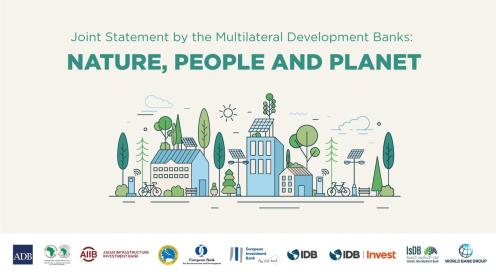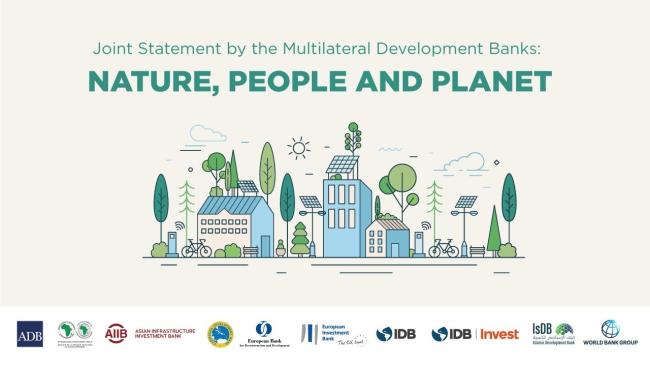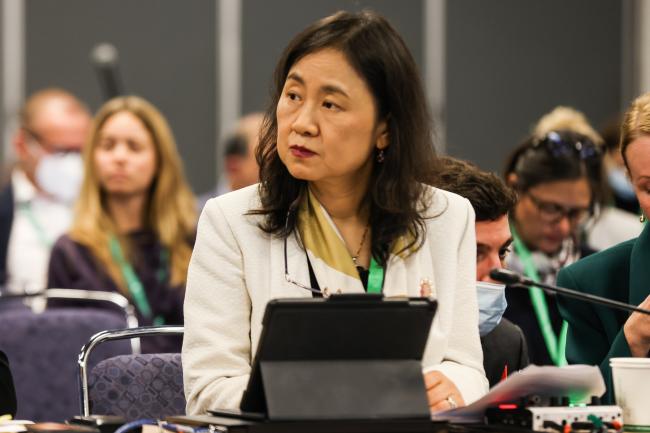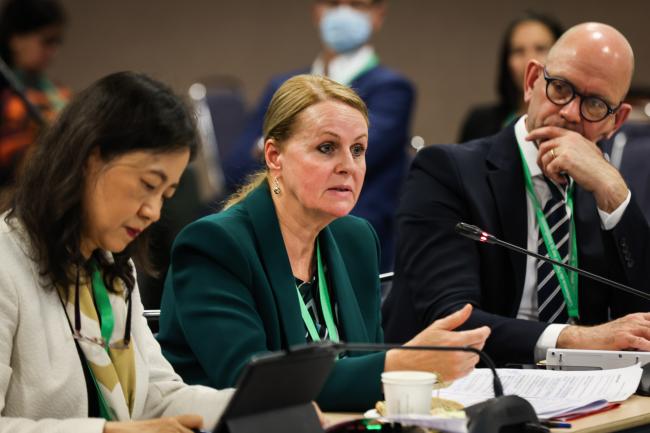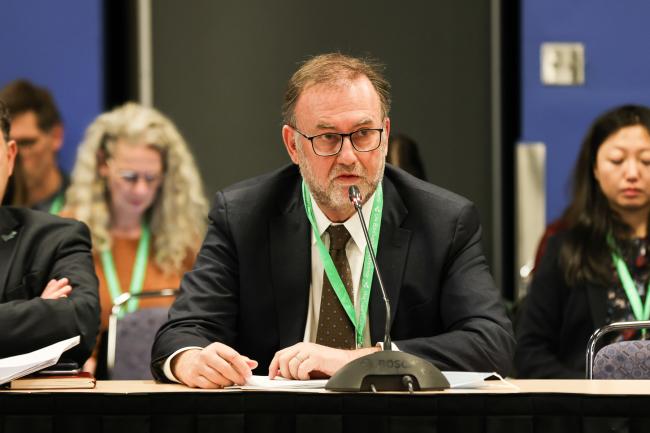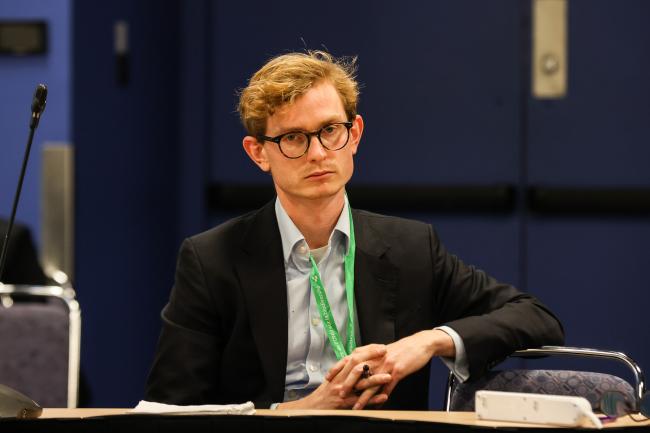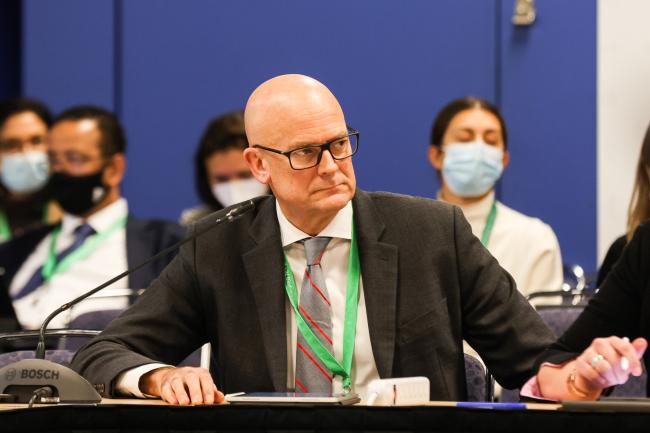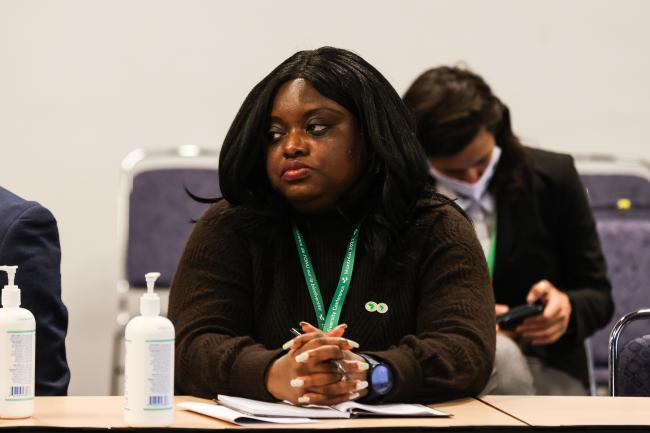About
This side event profiled key developments in defining and tracking nature positive investments, assessing nature-related risks, and approaches and opportunities for valuing nature in economic planning and decision-making.
At UNFCCC COP 26 in Glasgow, UK, ten multilateral development banks (MDBs) signed a Joint Statement on Nature, People and Planet, which recognizes that tackling global poverty, climate change, and the drivers of nature and biodiversity loss are inextricably linked and affirms their commitment to further mainstream nature into their policies, analyses, investments, and operations.
This side event profiled key developments in defining and tracking nature-positive investments, assessing nature-related risks, and approaches and opportunities for valuing nature in economic planning and decision making.
Xiaohong Yang, Asian Development Bank (ADB), moderated the session. On the role MDBs and nature, Stephen O’Driscoll, for Ambroise Fayolle, European Investment Bank (EIB), underlined the need for MDBs to align with the post-2020 global biodiversity framework (GBF), stating this would include more robust reporting, disclosures, and accountability for investments, and underscoring the need for new tools for this work.
Suzanne Gaboury, ADB, lauded the joint MDB statement on Nature, People and Planet. She highlighted the launch of the MDB Biodiversity and Nature Working Group to ensure support for, and implementation of, strategic nature-positive priorities and initiatives.
Florika Fink-Hooijer, European Commission, noted the important role of MDBs in scaling up financing for the GBF in a similar vein as has been done for climate. She stressed the link between climate and biodiversity and expressed hope that MDBs will “put their money on the table” to reverse biodiversity loss.
Benigno López Benítez, Inter-American Development Bank (IADB), underscored the need to develop tools to reach a common understanding on a nature-positive approach, noting this process includes developing a common definition, which could consider parallel definitions from different MDBs and regions. He stressed the importance of nature-positive financial tracking solutions.
Sjoerd van der Zwaag, Network for Greening Financial System (NGFS) Task Force on Nature, noted the Task Force has acknowledged that nature-related risk could have significant implications for economic growth. Noting the role of MDBs in the NGFS, he highlighted that MDBs have a role in addressing barriers to finance, and underscored that knowledge is a critical resource MDBs could share.
Valerie Hickey, World Bank, said the Bank is rolling out nature-positive investments by, among others: making sure nature is part of countries’ balance sheets; increasing direct investments to biodiversity; measuring nature co-benefits; and addressing safeguards, including for Indigenous Peoples.
Alberto Ninio, Asian Infrastructure Investment Bank (AIIB), stressed that there is sufficient data to invest in nature, and noting striving for perfect data will hinder progress. He highlighted the need to fast track partnerships, which means taking risks. He emphasized that Indigenous knowledge partners should be advising MDBs.
Henrik Linders, European Bank for Reconstruction and Development (EBRD), underscored the importance of addressing the drivers of nature loss, and called for mainstreaming nature-positive investments. He highlighted some challenges the Bank has identified, including the need to identify risks, and the lack of tools for quantifying nature-positive projects, pointing to the Taskforce on Nature-related Financial Disclosures (TNFD) as a new tool in this regard.
Ning Liu, Ministry of Ecology and Environment, China, drew attention to his country’s formulation of a master plan of nature capital accounting. He pointed to pilot programmes around the country incorporating the value of nature in various government departments. He shared that nature-positive accounting can promote changes in the way we evaluate economic growth.
Emmanuel Nyirinkindi, International Finance Corporation (IFC), called for engaging the private sector to address biodiversity loss. He noted that MDBs do risk management well, but what is important is financing nature restoration by capital market investments and the private sector. He said the IFC has developed a biodiversity reference guide, which provides an indicative list of projects that are addressing the drivers of biodiversity loss and promoting nature-based man-made solutions to nature loss.
Bradley Hiller, Islamic Development Bank (IsDB), noted three reasons to engage the private sector, including: to address the imbalance between nature positive and nature negative investments; to combine net-zero approaches with nature positive ones; and the COVID-19 shift to nature-positive investments. He noted the launch of the IsDB’s sustainable finance agenda, which also includes the issuance of green and sustainability bonds.
Vanessa Amokeye Ushie, African Development Bank (AfDB), highlighted African countries’ progress in implementing their national biodiversity strategies and action plans (NBSAPs), pointing to a recent report which addressed knowledge, finance, and capacity gaps. She noted that the AfDB’s USD 8.5 billion replenishment will prioritize financing to address biodiversity loss and conservation. She said 39 of 80 projects currently being implemented are nature-based and noted a role for debt-for-nature swaps and private sector engagement.
Dominic Jeremy, Foreign, Commonwealth and Development Office (FCDO), UK, shared a 10-point plan for financing nature that includes the role of the private and public sectors and MDBs. He underlined the need for MDBs to show leadership in driving nature-positive investment.
Organizers: ADB, AfDB, AIIB, EBRD, EIB, IADB, IsDB, World Bank
Contact: Xiaohong Yang, ADB, <xyang@adb.org>
For more information: https://www.cbd.int/side-events/4917
Written and edited by Tallash Kantai, Vijay Kolinjivadi, PhD, and Deborah Davenport, PhD.
All ENB photos are free to use with attribution. For this event, please use: Photo by IISD/ENB | Natalia Mroz
To receive free coverage of global environmental events delivered to your inbox, subscribe to the ENB Update newsletter.
